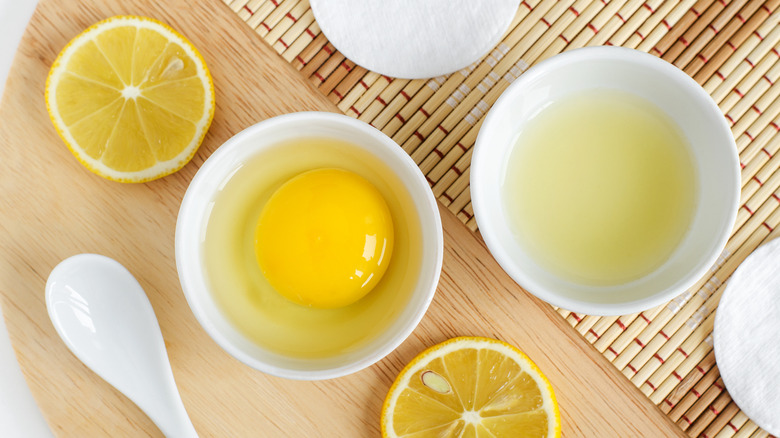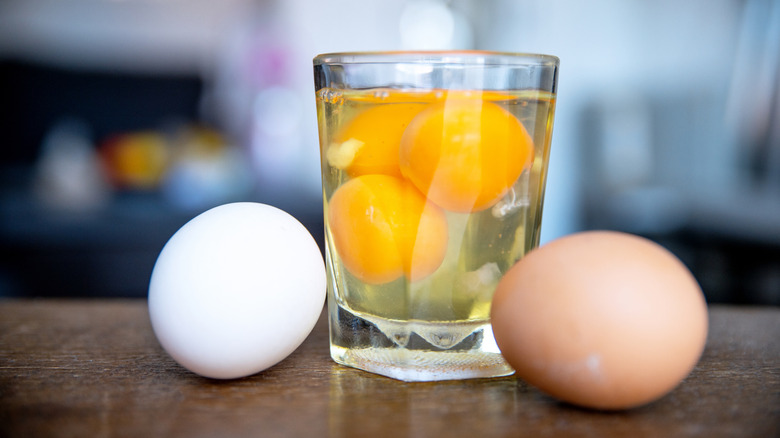Will Lemon Juice Really Kill The Salmonella In Raw Eggs?
Raw eggs are a thing in pop culture. Children lick batter out of mixing bowls, adults enjoy a range of raw egg drinks and cocktails, athletes gulp down a few yolks before a training session. But raw eggs are also known to potentially carry salmonella, a bacteria which causes days of diarrhea, stomach cramps, and other gastrointestinal distress. In immunocompromised people, it can even kill.
Whether you're indulging in raw egg to get the choline for muscle building, or just can't get enough of the cookie batter you made (watch out for the flour though), it's important to do something about the salmonella risk.
Citric acids like lemon juice can neutralize the food-borne illness of fish and make a fine ceviche, would the same idea work with raw eggs? You probably won't see egg ceviche on a restaurant menu any time soon, but it is true that lemon juice can help reduce the risk of salmonella in raw eggs — though it is not a very practical option, either.
How lemon juice kills salmonella, plus a better way
A research study for homemade mayonnaise published in Letters in Applied Microbiology found that the addition of lemon juice can neutralize salmonella bacteria present in raw egg yolks, with a few catches. The success of this method depends on the pH of the mayonnaise, which itself depends on the egg yolk/citric acid ratio. And, it takes time.
To use lemon juice to kill the salmonella in raw eggs, mix in at least 20 mL of pure juice per yolk, and store it at 71 degrees Fahrenheit for 72 hours. For mildly faster results, use 35 mL of pure juice per yolk, stored for 48 hours.
This is not a very quick method for neutralizing salmonella bacteria in egg yolks, nor is it 100% effective. Pasteurized eggs, which are heated enough to kill harmful bacteria inside, are the safe way to consume raw eggs, though evidence of their special nutritional benefit is thin: raw eggs may have more protein, but our bodies absorb it better when cooked.

